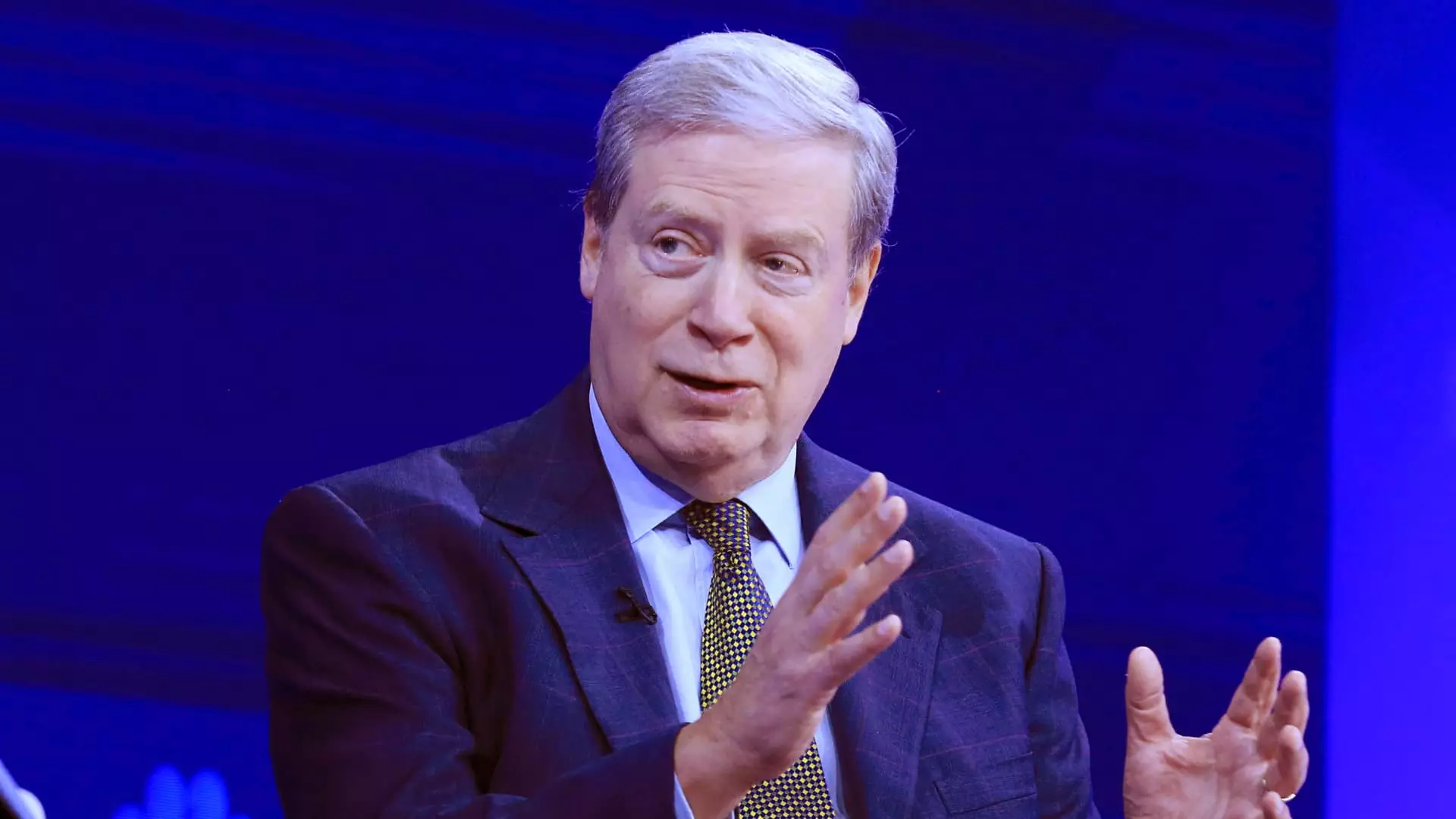In the wake of Donald Trump’s re-election, top investors are reevaluating the economic landscape, with Stanley Druckenmiller leading the charge in expressing newfound optimism. Having navigated financial markets for nearly five decades, Druckenmiller emphasized that the atmosphere among CEOs is shifting dramatically. His assertion that the recent administration change has flipped the narrative from one that was anti-business to one that fosters growth and ambition speaks volumes about the prevailing sentiment. “This current environment feels radically different from what we experienced previously,” he noted during a CNBC interview. By speaking directly with entrepreneurial leaders, Druckenmiller reports a pervasive sense of relief—if not outright giddiness—among business leaders, marking a significant turnaround in perspective.
Despite this surge in optimism surrounding economic conditions, Druckenmiller exhibits a nuanced approach regarding the stock market’s trajectory. While he praises the revitalization of business sentiment, he expresses hesitation about the stock market’s immediate future, predominantly due to rising bond yields. Higher yields typically signal increased borrowing costs and can dampen consumer spending—a fundamental driver of economic growth. Druckenmiller openly stated, “The market scenario is intricate,” acknowledging the tension between a strong economy and the implications of rising yields. His continued short position against Treasury bonds reflects an underlying belief that while the economy may grow, the market conditions may not remain as favorable due to these external pressures.
Trump’s administration has historically been linked to significant tax cuts and sweeping deregulation policies. Following the election, these anticipated initiatives have led to palpable enthusiasm in risk assets, particularly within the banking and energy sectors. The S&P 500’s impressive climb of nearly 6% in November is a testament to this renewed confidence, as investors bet heavily on market responsiveness to fiscal incentives. Furthermore, cryptocurrencies, such as Bitcoin, are increasingly glimpsed as direct beneficiaries of this economic fervor, achieving new all-time highs. Druckenmiller’s focus on individual stocks, especially those poised to leverage advancements in artificial intelligence for efficiency, indicates a strategic repositioning that illustrates the shifts occurring within the investment landscape.
Druckenmiller’s Strategic Stock Picking
As an investor, Druckenmiller possesses a reputation for keen stock selection, particularly when it comes to innovative technology like artificial intelligence. Despite his recent exit from well-known stocks like Nvidia and Microsoft, he remains convinced that companies harnessing AI will experience substantive cost savings and enhanced productivity. The exact stocks he is currently investing in remain undisclosed; however, his faith in AI-driven growth underscores a broader trend where investors must now sift through an ever-expanding array of opportunities presented by technological advancements.
Potential Risks: Tariffs and Economic Fallout
Whatever potential benefits come from Trump’s re-election, Druckenmiller is not blind to the associated risks. He addresses the potential for trade reprisals stemming from new tariffs, a subject that mixes fiscal potential with widespread uncertainty. Tariffs, which he interprets as a consumption tax primarily on foreign entities, present a complex duality—an opportunity for revenue generation against the risk of retaliatory measures from trading partners.
However, Druckenmiller optimistically frames the conversation, suggesting that despite the potential for backlash, the fiscal realities of the United States necessitate innovative solutions, such as tariffs, which can shore up revenue streams. “We face an undeniable fiscal challenge; we require funds. Tariffs can lessen this burden,” he states, underscoring a pragmatic approach to what some might see as conflicting economic strategies.
With a storied history that includes managing George Soros’ Quantum Fund and making history with the famed British pound bet, Druckenmiller’s insights carry weight. His keen analysis and willingness to navigate complex market landscapes suggest that the future may hold both significant challenges and exciting opportunities for investors who can adapt to the evolving economic environment. The interplay between growth optimism and cautious market sentiment encapsulates the delicate balance investors must tread in the unpredictable realm of finance. As the market responds to the new administration, only time will tell how fully both businesses and investors can leverage the opportunities presented in this unique chapter of economic history.

